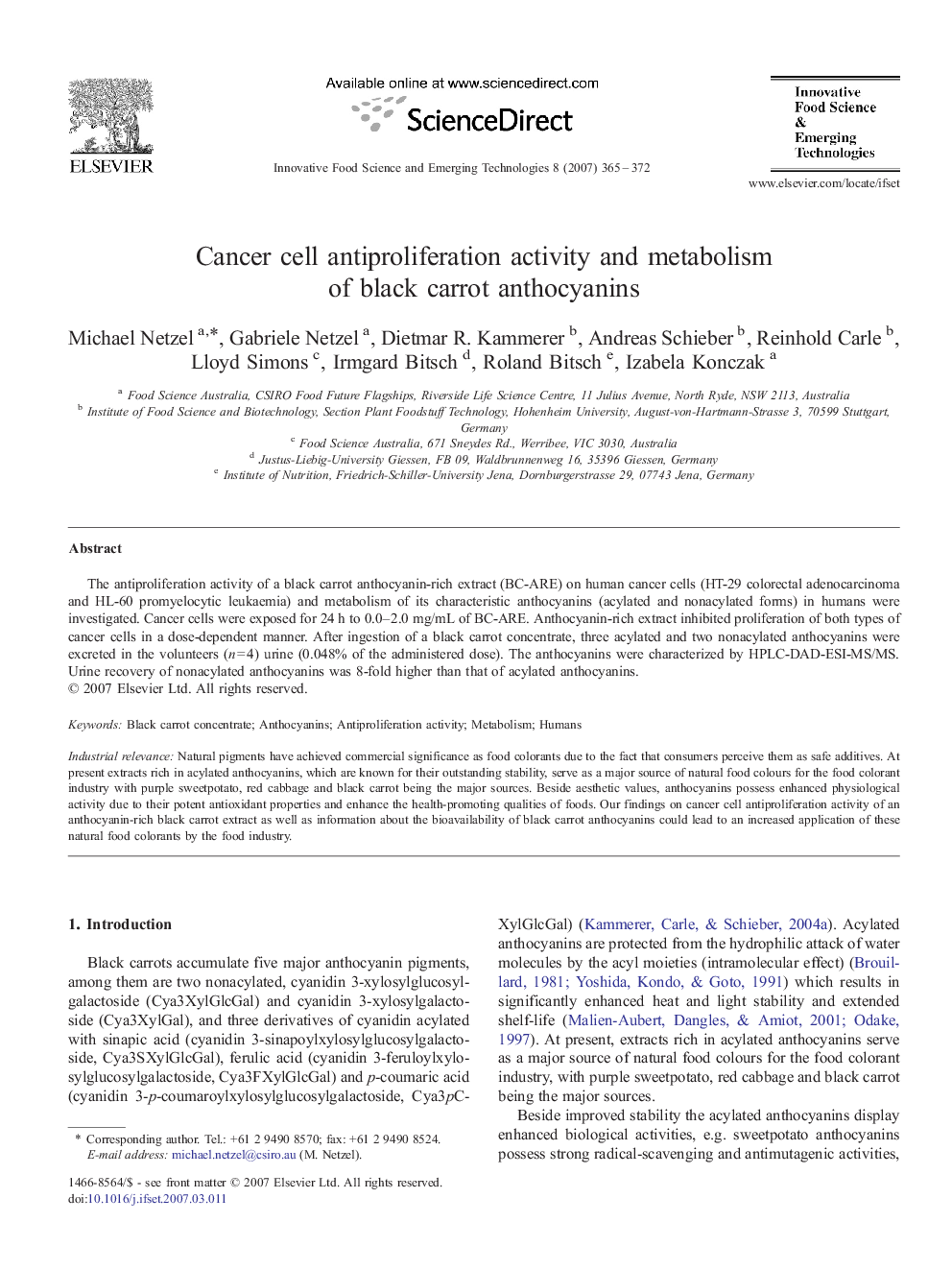| Article ID | Journal | Published Year | Pages | File Type |
|---|---|---|---|---|
| 2087501 | Innovative Food Science & Emerging Technologies | 2007 | 8 Pages |
The antiproliferation activity of a black carrot anthocyanin-rich extract (BC-ARE) on human cancer cells (HT-29 colorectal adenocarcinoma and HL-60 promyelocytic leukaemia) and metabolism of its characteristic anthocyanins (acylated and nonacylated forms) in humans were investigated. Cancer cells were exposed for 24 h to 0.0–2.0 mg/mL of BC-ARE. Anthocyanin-rich extract inhibited proliferation of both types of cancer cells in a dose-dependent manner. After ingestion of a black carrot concentrate, three acylated and two nonacylated anthocyanins were excreted in the volunteers (n = 4) urine (0.048% of the administered dose). The anthocyanins were characterized by HPLC-DAD-ESI-MS/MS. Urine recovery of nonacylated anthocyanins was 8-fold higher than that of acylated anthocyanins.Industrial relevanceNatural pigments have achieved commercial significance as food colorants due to the fact that consumers perceive them as safe additives. At present extracts rich in acylated anthocyanins, which are known for their outstanding stability, serve as a major source of natural food colours for the food colorant industry with purple sweetpotato, red cabbage and black carrot being the major sources. Beside aesthetic values, anthocyanins possess enhanced physiological activity due to their potent antioxidant properties and enhance the health-promoting qualities of foods. Our findings on cancer cell antiproliferation activity of an anthocyanin-rich black carrot extract as well as information about the bioavailability of black carrot anthocyanins could lead to an increased application of these natural food colorants by the food industry.
